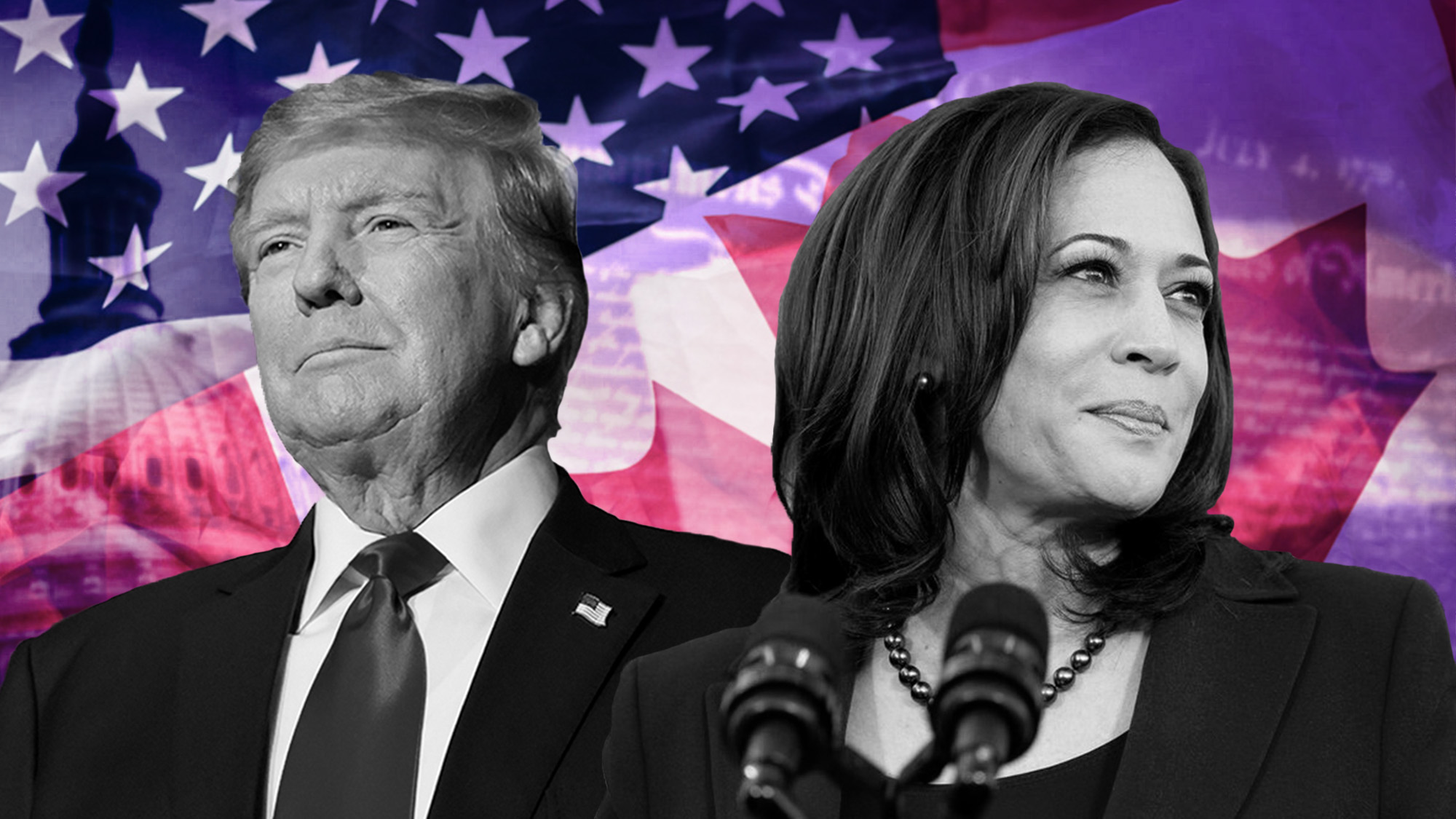

The 2024 U.S. Presidential Election is poised to be one of the most pivotal in modern history, with outcomes that could radically reshape both domestic and international landscapes. The decisions made by American voters regarding the two leading candidates—current Vice President Kamala Harris and former President Donald Trump—will echo globally, influencing economic policies, social justice movements, international relations and media.
We spoke with Political Science Professor Dr. Terri Givens about how politicians in both the US and Canada are engaging in “culture wars” to define their differences.


Dr. Terri Givens (she/her)
Dr. Givens is an award-winning scholar and professor at the Department of Political Science. Her research and teaching focus on comparative politics including immigration policy, the politics of race, and anti-discriminatory policy.
Do you think the election could affect progress on social issues? How might this show up in Canadian society?
Whether Trump or Harris wins, we’re already seeing an impact on issues related to racial justice, gender equality, and 2SLGBTQIA+ rights, at the state and provincial levels. To those, I would add religious freedom (scarf ban in Quebec), education cuts, and general healthcare issues beyond reproductive rights. Left politicians tend to focus on rights for minority groups, while conservatives tend to focus on the way that support for minorities might negatively impact the majority population. Given increasing inequality, particularly in the US, many grievances are valid. Still, there are often issues related to shifts in wealth to the 1% versus greater benefits to targeted minority groups.
In the US and Canada, many companies are cutting their EDI (Equity, Diversity, and Inclusion) staff as a backlash is growing against race-based programs in both countries. Universities on both sides of the border are under financial pressure, whether it’s from budget cuts by states and provinces or a slowdown in the growth of international student enrollment. Housing pressures are an issue on both sides of the border, but Canada has been more dependent on international students, and cutting back on visas has the potential to undermine the growth of Canadian universities.
Overall, the issue of race is very complex in Canada. Another important topic has been religion, particularly in the case of Muslim communities and the general process of racialization of non-white immigrants. For example, the history of Asian migration to Canada has been similar to the US, in that migrants from Asia faced exclusion policies from the 1920s until the mid-1960s. Bias still exists and was particularly prevalent during the COVID-19 pandemic when Asian people were often targeted with violent attacks.
US Immigration Policy and its impact on Canada’s security and relations
In the US, there has been a focus on security issues, which has also played a role in the Canadian government’s handling of relations with China, and support for US policies in the Middle East. A Trump administration would be antagonistic to migrants, as Trump has called for a massive deportation that would decimate many parts of the US economy, including agriculture. Although Harris has called for the passage of a bill to increase border security, her administration would likely continue to welcome immigrants and try to ease visa requirements that have led to long waits for visas, even for qualified applicants.
Immigration reform and stronger border controls are bipartisan issues in the US, with both parties showing strong interest. However, Republican representatives recently voted down a measure addressing immigration control, influenced by the Trump campaign’s intention to use immigration as a political issue. It is not clear if this will pay off, but it is clear that some form of immigration legislation is likely to be passed regardless of who wins the election. A Trump administration could lead to disastrous outcomes, including pressure on Canada to accept migrants fleeing deportation in the US. However, US immigration policy has been and will continue to be focused on control, and the Canadian government will be challenged to find new ways to collaborate with the US, particularly in regard to security.
“Whether Trump or Harris wins, we’re already seeing an impact on issues related to racial justice, gender equality, and 2SLGBTQIA+ rights at the state and provincial levels.”
Indigenous Peoples and environmental rights
The Biden administration took several important actions to show support for Indigenous communities, from choosing the first Native American cabinet secretary, Deb Haaland, and restoring national monuments that will protect land that is sacred to many native communities. Given the actions taken by the first Trump administration, it is not a stretch to assume that Indigenous rights will be ignored if Trump is elected again. Trump is keen to open land to oil exploration, even though the US is already producing a large amount of oil. These steps might influence public sentiment in Canada towards also increasing oil production, which could be detrimental to the environment and Indigenous rights.
Women’s rights and health care
The US election could be another blow to women’s rights and bodily autonomy. Not only if Trump wins, but also at the state level as many state legislatures pass restrictive laws, that are not only damaging to women’s health but healthcare in general, as physicians and nurses choose to move to different states at a time when healthcare workers are in short supply everywhere. A Trump win or a significant increase in support for GOP (Grand Old Party) candidates at the state level could embolden more conservative candidates in Canada to take stronger positions that would appeal to fear rather than supporting underrepresented communities. On the other hand, we could see a rebuff to the politics of fear if Harris is elected and is also supported by a majority in Congress. On these issues, there is a stark difference between the two sides, and even though it is expected that Harris/Walz will win the popular vote, it’s possible they could lose because of the need to win swing states to win the electoral college.


